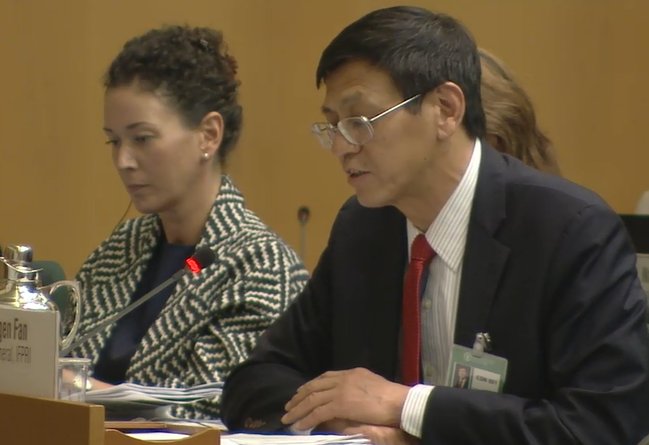These remarks were presented at the International Symposium on Sustainable Food Systems for Healthy Diets and Improved Nutrition in Rome Dec. 2, at the plenary session, “ICN2 Next Steps: Work Programme of the UN Decade of Action on Nutrition in the Era of the Sustainable Development Goals.”
IFPRI applauds FAO, WHO and partners for leading the UN Decade of Action on Nutrition. These efforts are critical to maintain the strong global and national momentum toward ending hunger and malnutrition.
The proposed Work Programme for the Decade of Action on Nutrition is an important follow-up to the Second International Conference on Nutrition (ICN2). The Work Programme is key for galvanizing efforts and resources to achieve multiple Sustainable Development Goals (SDGs), especially Goal 2 of ending hunger and malnutrition for all.
As stated in the Work Programme, a guiding principle of the Nutrition Decade is for “Member States and the global community to identify and commit to clear, evidence-based policies and actions, tailored to their respective context.”
Indeed, to fulfil the Nutrition Decade, it will be critical that countries and initiatives have timely data and solid evidence to inform their decisions, effectively implement their policies and programs, and track and monitor progress.
IFPRI and its Compact2025 initiative remain committed to supporting the Decade of Action on Nutrition by providing data, generating evidence-based research, facilitating innovation, and strengthening capacity to countries and initiatives working to end hunger and malnutrition.
By using evidence to help design and implement policies that impact nutrition, we can make substantial progress toward ending hunger and undernutrition. In fact, evidence shows that it is even possible to accelerate progress and end hunger and undernutrition within this Decade of Action.
Countries such as Brazil, China, Peru, and Thailand have each drastically reduced hunger and undernutrition in a relatively short time.
Evidence also shows that no one sector or initiative can end hunger and malnutrition by itself. Working together is critical to leverage each other’s strengths across multiple sectors to improve food security, nutrition, and health. For example:
- The agriculture sector can become more nutrition-driven by moving beyond productivity and using improved nutrition as a goal;
- Health sector strategies like behavior change communication can amplify the impact of nutrition interventions;
- Social protection can help address immediate needs while promoting nutrition, health, and even agricultural productivity; and
- Information and communication technologies (ICTs) can be leveraged to increase efficiency in the food system and improve livelihoods of smallholders.
Compact2025 engages with countries to bring together the many sectors and stakeholders involved in food security and nutrition. This past year in Bangladesh, Ethiopia, Malawi, and Rwanda, Compact2025 and partners held discussions to assess how to accelerate progress in each country.
While each country has its unique opportunities, some cross-cutting recommendations emerged, such as to
- Make strategies, policies, and programs more nutrition-driven
- Improve coordination and accountability
- Enhance and implement policies and scale-up successful programs
- Strengthen capacity
- Fill data and knowledge gaps
Compact2025 complements and supports established initiatives and networks already working to eliminate hunger and undernutrition, including the Scaling Up Nutrition (SUN) Movement and the African Union.
IFPRI and its Compact2025 initiative are ready to provide knowledge support for the Decade of Action on Nutrition.
There is no doubt that we have a huge task in front of us. Despite recent progress,
- 795 million people suffer from hunger;
- 2 billion people are micronutrient-deficient;
- 156 million children under five are stunted; and
- 1.9 billion people are overweight.
With strong momentum generated from commitments to the Decade of Action on Nutrition, we have the opportunity to accelerate progress to end hunger and malnutrition for all.
Shenggen Fan is the Director General of IFPRI.







